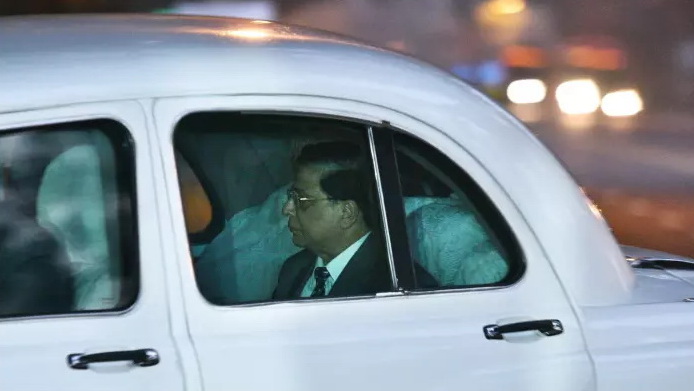| Getting your Trinity Audio player ready... |
India’s political opposition has launched an unprecedented bid to remove the chief justice of the Supreme Court, voicing concerns about the erosion of judicial independence under Prime Minister Narendra Modi.
More than 70 members of the upper house of parliament from seven opposition parties, led by Rahul Gandhi’s Congress party, have signed a motion seeking Dipak Misra’s impeachment.
In a press conference after submitting the motion to India’s vice-president Venkaiah Naidu, Congress leader Kapil Sibal said Mr Misra has “not asserted the independence of the court in the face of interference by the executive”.
The impeachment move is unlikely to be successful, given that it would require a two-thirds majority of parliament to remove a sitting judge, numbers the opposition is unlikely to muster.
But it marks the first time in post-independence India that legislators have sought to impeach a chief justice and highlights the deepening polarisation in the country, where confidence in even the most respected institutions is gradually eroding.
The move comes just months after four other Supreme Court judges held an extraordinary press conference to express their concern about how Mr Misra was handling court affairs, particularly the assignment of politically sensitive cases.
At the time, Justice Jasti Chelameswar warned that unless the integrity of the Supreme Court was preserved, “democracy will not survive in the country”.
Mr Sibal, a Supreme Court lawyer, told reporters on Friday that the motion to impeach Mr Misra was grounded in five incidents of “conduct unbecoming” of the country’s highest judicial officer.
Among those, Mr Sibal said, was “abuse of exercise of power . . . in choosing to send sensitive matters to particular benches by misusing his authority as master of the roster with the likely intent to influence the outcome”.
But in a lengthy Facebook post on Friday, Arun Jaitley, the finance minister, accused Congress of filing “a revenge petition”. It came just a day after a three-judge bench of the Supreme Court, led by Mr Misra, rejected pleas for an independent investigation into the 2014 death of a special judge then hearing a sensitive criminal case against Amit Shah, president of Mr Modi’s ruling Bharatiya Janata party.
Mr Jaitley, a veteran courtroom lawyer, said the Congress move was clearly an attempt to “intimidate” judges whose rulings may not be to the party’s liking.
“The power of impeachment under our constitution is a part of inter-institutional accountability,” he wrote. “Trivialising the use of the power is a dangerous event.”
He added: “Does this impeachment set a precedent that political parties in India will use impeachment as an instrument to intimidate judges hearing controversial matters?”
Mr Sibal denied that the motion against Mr Misra was driven by political partisanship, referring to the earlier press conference by the judges. “When the judges of the Supreme Court themselves believe that the judiciary’s independence is under threat and democracy in peril, alluding to the functioning of the office of the chief justice of India, should the nation stand still and do nothing?” he told reporters.
The move to impeach Mr Misra comes at a sensitive time. The chief justice, who is due to retire in early October, is now hearing pleas in the highly polarising dispute over claims to a contested site in Ayodhya, where Hindus destroyed in 1992 a mosque that they believe stood on the birthplace of Lord Ram.
Mr Misra rejected pleas from those who argued that the sensitivity of the case meant it should be deferred until after India’s 2019 election. – Resource Credit.










